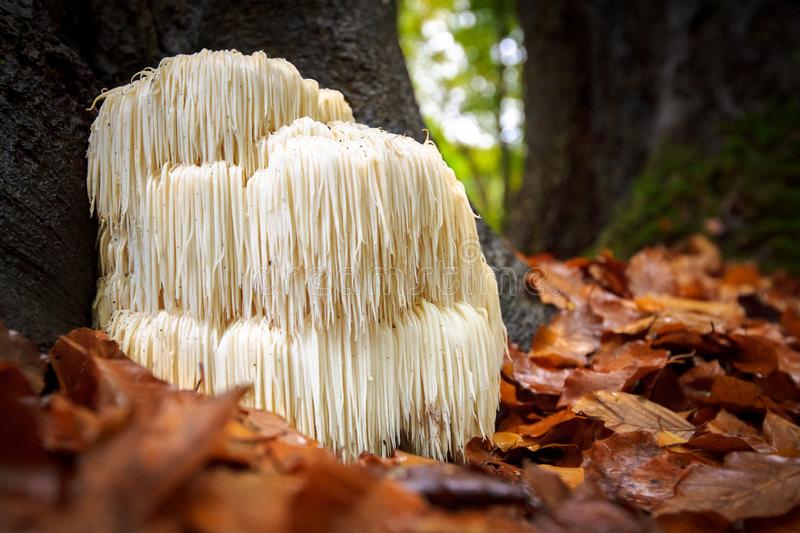Walking in the forest, and finding mushrooms, is a feast for the senses. Rich, sensual fragrances and inviting textures are everywhere; from the deep moist soil and the rough bark of the trees, to the earthy sometimes fruity odor and spongy textures of the mushrooms. Everything invites you to come closer.
Saying goodbye to our Reishi Queen we continue to walk through the forest. As the afternoon moves into early evening, the light changes and the trees get larger as we go deeper into the forest. Our feet are no longer rustling through the leaf litter instead there's the crunch of small stones as we move along a creek bed. Everywhere around us now are large oak trees, a few of the oldest have fallen. Growing along the bark of these stately oaks, are dozens of little white masses looking like shaggy ghosts in the dim forest light. These are lion's mane mushrooms. The cascading white strands, waterfall down the head of the mushroom fruiting bodies creating a shaggy, dog-like mane. The fragrance is rich and sweet, the texture soft to the touch. Lion's Mane's meaty texture makes it a popular replacement for meat in Asian dishes. You can even find fresh lion's mane in some of your local grocery stores. Sauteed in butter until it's crispy brown, it has a seafood-like flavor.
Everyone benefits from bringing lion's mane into their life. With over 35 different active compounds, lion's mane is most well known for neuroprotection and regeneration. The mature mushroom (fruiting body) contains terpenes called hericenones, which have been researched for their ability to relieve mood disorders and stimulate nerve growth. The immature form (mycelium, which usually grows underground), contains a terpene called erinacines. Erinacines have even greater impact, being 3-6 times more potent, for helping preserve memory and stimulating growth of new nerves. The erinacines and hericenones are unique, because they are small enough to cross the protective blood-brain barrier. This is why many studies have revealed lion's mane to be a protector against stroke, Parkinson's disease, Alzeheimer's disease, depression, nerve pain and nerve damage.
The evening light is swiftly dimming, and as we say goodbye to our new friend, lion's mane, we continue to marvel at all the wonders that nature provides. Medicinal fungi interact with our whole body to help modulate immune response, help calm the nerves, support our cardiovascular system, and protect us from toxins and stress.
So I'll leave you again with a quote from another of my favorite mushroom gurus:
"When we turn our attention to nature, we receive her blessings, her nurturing, and her vast wisdom, which is so restorative and healing to mind, spirit and body." -Christopher Hobbs
Read The Magic of Mushrooms: Reishi

